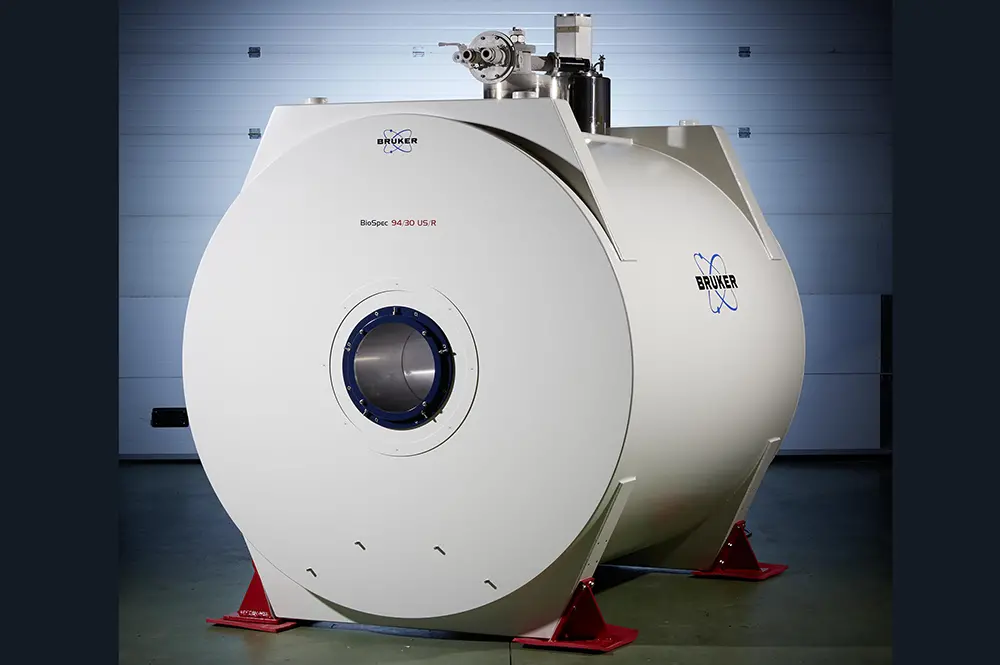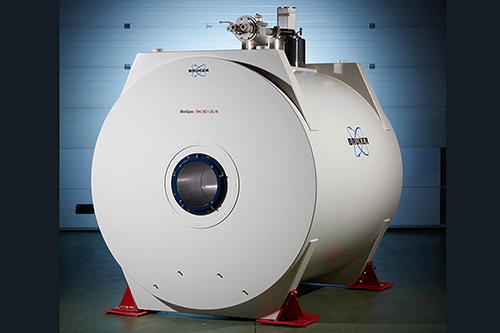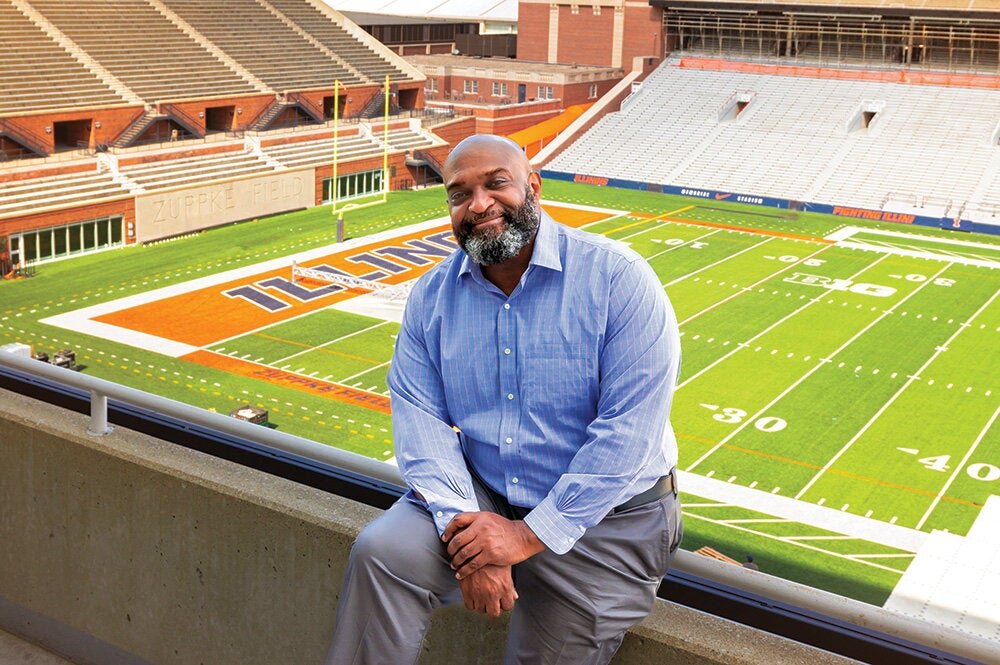

Several departments, colleges, and schools at Illinois, including 11 in the College of Liberal Arts & Sciences, are combining with the Roy J. Carver Charitable Trust to purchase a Bruker 9.4 Tesla preclinical animal MRI system.
Construction is expected to begin in the fall for the system, which will cost about $6 million in total. The Carver Trust’s gift amounts to just over $831,000. Construction is expected to start this fall, and the MRI will be sited next fall at the Beckman Institute for Advanced Science and Technology.
The Roy J. Carver Charitable Trust, located in Muscatine, Iowa, is one of the largest private foundations in the state of Iowa. It was created through the will of Roy J. Carver, a Muscatine industrialist and philanthropist, and a 1934 graduate of The Grainger College of Engineering at the University of Illinois at Urbana-Champaign. The Carver Trust supports biomedical and scientific research, scholarships, and programs addressing the educational and recreational needs of youth.
An MRI scanner provides a safe and non-invasive assessment of anatomy and structure in animals. It is a tool that allows findings from animal research to effectively increase understanding of both human and animal physiological structure and function. Use of MRI allows researchers to expand their knowledge of tissue structure and development in a non-invasive manner. And it provides a direct mechanism to translate that knowledge to human studies.
Researchers at Illinois have made significant discoveries related to human health at Illinois using existing MRI equipment, but Brad Sutton, technical director of the BioBiomedical Imaging Center (BIC) and professor of bioengineering, said that the new MRI will allow Illinois to lead the way in research on brain development, the impact of nutrition on brain function, cellular mechanisms in cancer, improved understanding of sleep and glmphatic flow, and the role of mechanical properties of the brain in brain health.
The new system will deliver higher-resolution imaging capabilities, enabling researchers to analyze more intricate structures and processes in the brain, and advancing their ability to recommend dietary and drug interventions to improve cognition, memory, behavior, and overall brain health. The new equipment is necessary to enable sufficient resolution for animal studies to provide insights into the biomedical and physiological questions being addressed at Illinois.
Contributing units from the College of LAS include the college, the Schools of Molecular and Cellular Biology, Integrative Biology, and Chemical Sciences; and the Departments of Cell and Developmental Biology, Molecular and Integrative Physiology, Evolution, Ecology, and Behavior (formerly Animal Biology), Biochemistry, Microbiology, Psychology, and Chemistry.
Milan Bagchi, Director of the School of Molecular and Cellular Biology, said that the machine will be beneficial for a wide variety of Illinois faculty, students and researchers.
“The acquisition of the new preclinical MRI system will have a big impact on the discovery rate within a number of campus units,” Bagchi said. “It will allow us to maintain excellence on the Illinois campus and to keep our research and faculty competitive with peer institutions. The School of Molecular and Cellular Biology and its four departments are pleased to work with the Beckman Institute to help in the initiative to acquire this imaging system.”
James Slauch, head of the Department of Microbiology, said the machine will allow for better monitoring of a variety of immune responses, among other things.
“There are obvious implications infectious disease and microbiome research,” Slauch said. “One can monitor specific sites of infection and the resulting immune response, including inflammatory responses that occur in response to infection or disruption of microbiota.”
The expertise of BIC staff, and the center’s accessibility to researchers on campus and beyond make it the ideal location for the 9.4 T MRI scanner.
“This is really a campuswide effort and will impact research across the campus broadly,” said Tracey Wszalek, the director of the BIC at the Beckman Institute. “We have ongoing imaging studies in animals, healthy volunteers, and patient populations, and even soil samples. BIC brings together technology developers with a broad range of researcher needs to push the envelope of what is possible in characterizing everything from the single cell to complex behavior.”


